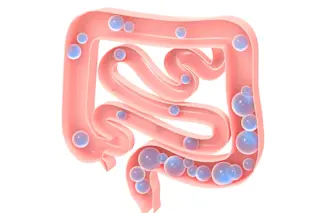Childhood obesity has been rising fast, but new genetic findings may aid progress toward a treatment. According to a study published today, a single altered gene appears to be responsible for upping some obese children's appetite, slowing their metabolism and causing lasting insulin resistance. The good news is that by understanding how the gene misbehaves, researchers may be able to use existing treatments or develop new ones to reverse the condition. In this study, researchers sequenced the genomes of more than two thousand patients, adults and children, with severe, early-onset obesity (where the condition kicks in before age 10). They found that mutations on a particular gene called KSR2 triggered problems with both appetite and metabolism.
Children with the KSR2 mutations were driven to eat more, a common effect of obesity-related genes. The real surprise was that the genetic mutation also caused patients' metabolic rates to drop, preventing their cells ...













